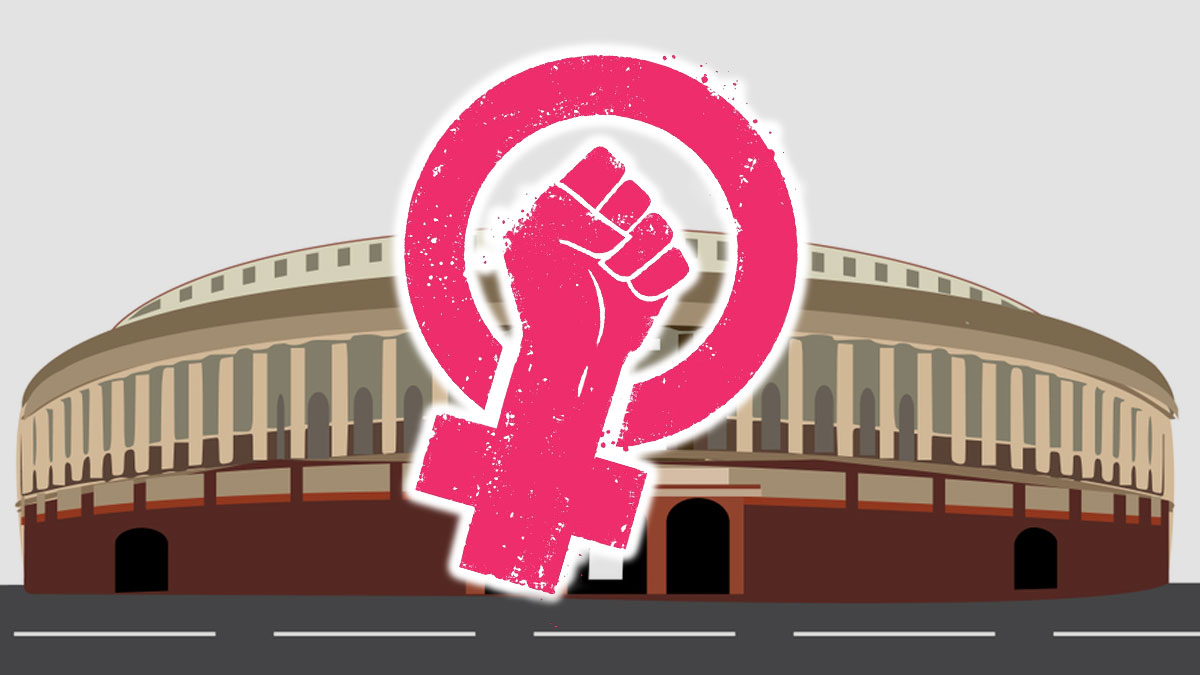
The Women's Reservation Bill (WRB) is once again making news, this time it is because Bharat Rashtra Samithi (BRS) leader K Kavitha went on a day-long hunger strike in the national capital demanding the passage of the long pending bill in the Parliament. Joining K Kavitha were leaders from opposition parties and women's organisations from across states.
Following the hunger strike, leader K Kavitha stated that the protestors will reach out to President Droupadi Murmu to introduce the Women's Reservation Bill in the parliament. For those unversed about the bill and its history, here is an explainer.
In 1993, a constitutional amendment was passed in the country where a random 1/3rd of village council leader or sarpanch positions in gram panchayat were said to be reserved for women. This was introduced as a long-term plan to be extended to reservation in the parliament and legislative assemblies.
The Women's Reservation Bill is a bill passed by the Parliament of India, which states to amend the Constitution of India to reserve 1/3rd of all seats in the lower house of the Parliament of India, the Lok Sabha in all state legislative assemblies for women. While the bill was passed in the Rajya Sabha, the upper house of the Parliament of India in the year 2010, it is yet to be passed in the Lok Sabha.

The Women's Reservation Bill highlights that one third of the total number of seats in the Lok Sabha shall be reserved for women falling under groups Scheduled Castes and Scheduled Tribes. These reserved seats can be allocated to different constituencies in the state or union territory by rotation. Another highlight of the bill is that women shall cease to exist 15 years after the commencement of this amendment act.

WRB was introduced in the Rajya Sabha in the year 2008 and it was passed in 2010. The bill was further transmitted to the Lok Sabha. However, the bill lapsed with the 15th Lok Sabha. The bill expired twice in the Lok Sabha, in 2014 and 2019.
Ever since 2010, the bill has been pending in the lower house. Though the Bharatiya Janata Party's (BJP) manifesto for Lok Sabha polls in 2014 and 2019 stated that the party was committed to provide 33 per cent reservation to women in the Parliament and state assemblies, the bill remained pending. Since the bill was pending in the Lok Sabha, it was lapsed following the dissolution of the House.
Don't Miss: Unconstitutional, Inhuman Treatment, Delhi HC On Virginity Test On Women Detainees
The Women's Reservation Bill continues to be pending years later too. Why? There have been multiple debates around the bill in the parliament in the past, however, the bill never got passage. The bone of contention seems to be the proposal to reserve 1/3rd of the seats for women from backward classes, the quota for women within this quota for women from scheduled castes and scheduled tribes.
Don't Miss: 6 Young Female MPs Who Are Shattering India's Political Glass Ceiling
Though BJP had promised the passage of the women's reservation bill in its election manifesto, PM Modi led administration has failed to do anything around the long pending bill. On the other hand, parties like Indian National Congress, Bahujan Samaj Party are backing the bill. Communist Party of India, however, isn't supporting the bill because of the condition to give seats to women from SC and ST condition. BRS leader, K Kavitha was backed by nine political parties including the Samajwadi Party, the Trinamool Congress among others.
Our aim is to provide accurate, safe and expert verified information through our articles and social media handles. The remedies, advice and tips mentioned here are for general information only. Please consult your expert before trying any kind of health, beauty, life hacks or astrology related tips. For any feedback or complaint, contact us at compliant_gro@jagrannewmedia.com.